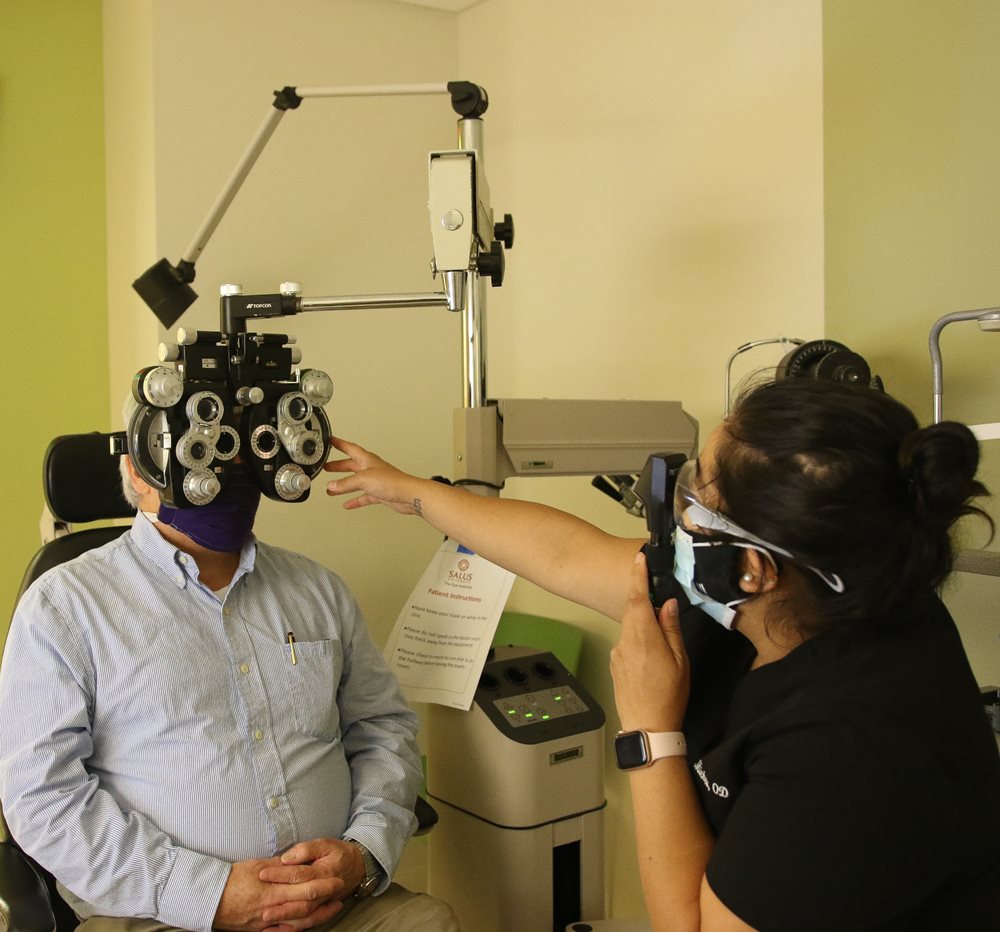Eye Care Tips for People with Diabetes
 What Is Diabetes?
What Is Diabetes?
Diabetes is a disease that affects the body’s ability to produce or use insulin effectively to control blood sugar (glucose) levels. Too much glucose in the blood for a long time can cause damage in many parts of the body. Diabetes can damage the heart, kidneys and blood vessels. It also damages small blood vessels in the eye.
According to the Centers for Disease Control and Prevention (CDC), diabetes is the main cause of blindness among people under 74 years of age. However, 90% of vision loss from diabetes can be prevented. Early detection is key. People with diabetes should schedule annual eye exams even before they have signs of vision loss.
What Is Diabetic Eye Disease?
Diabetic eye disease is a term for several eye problems that can all result from diabetes. Diabetic eye disease includes:
- Diabetic retinopathy
- Macular edema
- Cataracts
- Glaucoma
Diabetic retinopathy causes small blood vessels in the retina (at the back of the eye) to become weak and possibly leak blood. This disease can cause blindness if it is not treated. There are no symptoms when this disease starts, so it is important to have your eyes checked regularly.
Macular edema happens when fluid builds up on the retina and causes swelling and blurry vision. Diabetic macular edema can lead to permanent vision loss.
Cataracts cause a “clouding” of the lens of the eye that makes vision blurry.
Glaucoma causes pressure in the eye. If it is not treated, glaucoma can cause vision loss or blindness.
 What Other Eye Problems Are Related to Diabetes?
What Other Eye Problems Are Related to Diabetes?
Diabetes can cause vision problems even if you do not have a form of diabetic eye disease. If your blood sugar levels change quickly, it can affect the shape of your eye’s lens, causing blurry vision. Your vision goes back to normal after your blood sugar stabilizes. Have your blood sugar controlled before getting your eyeglasses prescription checked. This ensures you receive the correct prescription.
If you have diabetes, you are not doomed to develop diabetic eye disease. Although you are at risk, you have the ability to control your diabetes so your vision is not compromised. Controlling diabetes requires you to be active and involved in monitoring your blood sugar. There are some other specific things that you can do to help preserve your vision:
- Visit your doctor regularly—Schedule regular doctor visits for blood sugar monitoring. Listen to your doctors’ recommendations and follow them.
- Control your diet—Eating right is essential when trying to prevent or control diabetes. You need to eat a diet high in nutrients, low in fat and moderate in calories. Although you do not need to eliminate sugar completely, you must limit sugar to a small serving.
 Exercise regularly—Exercise can help you control your blood sugar, increase fitness and reduce your risk for heart disease and nerve damage. You should track your blood sugar before, during and after exercise to prevent hypoglycemia, also called low blood glucose or low blood sugar, which can cause insulin shock.
Exercise regularly—Exercise can help you control your blood sugar, increase fitness and reduce your risk for heart disease and nerve damage. You should track your blood sugar before, during and after exercise to prevent hypoglycemia, also called low blood glucose or low blood sugar, which can cause insulin shock. - Have regular comprehensive eye exams—Your eye doctor will test for diabetic eye diseases during your examinations. If you are pre-diabetic or diabetic, it is even more important to have regular follow-up visits to monitor your vision.
Scheduling a comprehensive eye exam at least once a year is an excellent first line of defense against diabetic eye disease but you should contact your eye doctor sooner if you notice any visual changes. During the exam, an optometrist can check for signs and symptoms of potential problems. To schedule an appointment at The Eye Institute, call 215.276.6111.